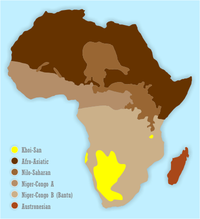
Acquiring variation in an artificial language: Children and adults are sensitive to socially conditioned linguistic variation
Sign Up to like & getrecommendations! Published in 2017 at "Cognitive Psychology"
DOI: 10.1016/j.cogpsych.2017.02.004
Abstract: Languages exhibit sociolinguistic variation, such that adult native speakers condition the usage of linguistic variants on social context, gender, and ethnicity, among other cues. While the existence of this kind of socially conditioned variation is… read more here.
Keywords: variation; speaker identity; artificial language; children adults ... See more keywords

The role of distributional factors in learning and generalising affixal plural inflection: An artificial language study
Sign Up to like & getrecommendations! Published in 2018 at "Language, Cognition and Neuroscience"
DOI: 10.1080/23273798.2018.1465187
Abstract: ABSTRACT Inflectional morphology has been intensively studied as a model of language productivity. However, little is known about how properties of the input affect the emergence of productive affixation. We examined effects of three factors… read more here.
Keywords: artificial language; factors learning; affix; language ... See more keywords

Co-Occurrence, Extension, and Social Salience: The Emergence of Indexicality in an Artificial Language
Sign Up to like & getrecommendations! Published in 2023 at "Cognitive science"
DOI: 10.1111/cogs.13290
Abstract: We investigated the emergence of sociolinguistic indexicality using an artificial-language-learning paradigm. Sociolinguistic indexicality involves the association of linguistic variants with nonlinguistic social or contextual features. Any linguistic variant can acquire "constellations" of such indexical meanings,… read more here.
Keywords: artificial language; language; indexicality; emergence ... See more keywords